Search Contract Jobs*
Hello!
You’re now leaving the Expedia Group careers site and will be directed to our supplier partner’s website to explore and apply for contract job opportunities with Expedia Group. The website is operated by Expedia Group’s employment partner.
*currently only offered in USA & UK
Jobs
Search Expedia Group Jobs
Data Science is for everyone
We asked 3 Data Scientists from across Expedia Group about their aspirations and interest in Data Science. Today they all work in different brands, on diverse projects and locations but all 3 share common ideas and passion for Data Science. These ladies see no borders between gender and passion for their jobs and we think that there is much to learn from their experience and path as females working in Data and Tech.
But don’t take that for granted and read about Begoña Ascaso (Egencia, Paris), Tatjana Kamenov (Expedia, Brisbane) and Victoria Lopez (Hotels.com, London) journey into Data Science.
Ladies, would you share with us how and why you chose the field of data science?
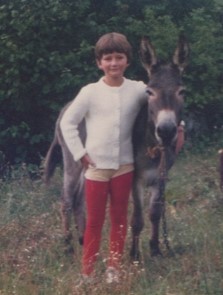
Tatjana Kamenov | Software Development Engineer II: For me it all dates back to my early childhood, when I spent a lot of time with my grandparents who lived in a hut in Croatia far from civilisation without electricity and running water. My best friends were nature and a donkey and that is where I learned to observe and explore and discovered my love for maths and science. In high school, I learned about programming (try googling for ZX Spectrum) and I felt it was only natural to continue my studies in mathematics and computer science. In University, I had a seminar about neural networks, and I fell in love with it, but had to wait for another decade or two until computers had the computing power to run them.

Begoña Ascaso | Principal Data Scientist: Since I was a kid, I always liked playing games related to finding patterns in numbers and enjoyed the science classes. When the time came to decide what to study, I chose Mathematics, as this subject felt like playing games. At this time, nobody talked about Data Science. Luckily my parents supported my decision, even though some of their friends shared their doubts in my choice as they didn’t see much future in the field. By the time I left Academia and went to industry, the Data Science field was flourishing, and I found exploiting data sets to solve or optimize problems very exciting.
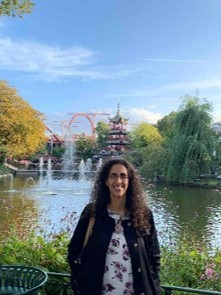
Victoria Lopez | Lead Data Scientist: I love maths since I was a child as well. Back then I always enjoyed solving problems or creating challenges to test my siblings. As I grew older, my dad decided to buy a computer, an Intel 286, and I was fascinated by the ability of the computer to mingle numbers together so quickly!
Data Science, as we know it today, only became popular in recent years after the industry realised the potential of applying automated decision making based on data. For me, choosing data science as a career represents my long-running interest in maths, computing and solving problems based on some kind of evidence – in this case, data.
Each of you had an amazing journey into discovering Data Science, but how did you become a data scientist and what did it require?
Begoña Ascaso: I have a background in Mathematics, and 14 years of research in Astrophysics. It might seem unrelated to Data Science, but in fact, producing and applying algorithms to find patterns in the galaxy’s properties is very similar to exploring Expedia traveler patterns.
To keep up, I attend Data Science meetups, take online courses, and regularly look for new scientific papers from which I can leverage pieces of code to build small models based on data.
Victoria Lopez: I hold an Undergraduate degree in Computer Science, which taught me how to design algorithms to solve problems automatically. I wanted to focus on data pursuing a Msc in Artificial Intelligence which then led to a PhD in Machine Learning. The large amounts of data generated nowadays pushed me to focus my post-doctoral research towards scalable systems for Machine Learning algorithms.
When I decided that I wanted to focus on more practical applications, Data Science was exactly the industry equivalent to my research as it combines my love of Machine Learning algorithms with the necessity of using data to solve problems in a rigorous way.
Tatjana Kamenov: After joining Expedia my excitement for Machine Learning (ML) was rekindled. My mathematical background helped a lot but to upskill over time I took several online courses, and today I continue to read books and research papers on the subject. It takes time and patience to become a data scientist, but it is very rewarding. My husband Dusan also supports my constant learning, helping me find time and keeping us busy with endless talks and discussions on all things IT and ML.
What do you think is the most exciting thing about being a data scientist?
Victoria Lopez: The most exciting part about being a data scientist is being able to transform raw pieces of data into meaningful results. The initial components might not make sense in isolation, but you can find amazing solutions by transforming lots of data in a structured and methodical way. I am always surprised when I check the outputs of a project I have worked on, for example, in property recommendations, as they are better than anything I could have anticipated.
Tatjana Kamenov: Constant learning and discovering new things is what gives me great satisfaction in the job. Data scientists would prepare data or set up an environment and choose or make an algorithm that learns pattern in data or a new behaviour. You can see models that can learn to recommend products, walk, talk and even drive cars and the reward from the achieved is amazing. I also love teaching at Expedia’s Data Science Academy, giving tech talks about different models or running a Deep Learning Study Group in Expedia.
Begoña Ascaso: I think that being a data scientist is a lot about being an explorer in the industry. I love the creativity of the job as well: to arrive at a solution there are many paths to explore and all of them are valid, it’s up to you to decide what is optimal in terms of time, resources and… beauty of the solution. I also have the great opportunity to teach a few Data Science classes to my colleagues I have been so surprised to see the growing interest and especially women who represented 40% of my last class, which blew my mind.
With all this passion for your job it is incredible to see how all 3 of you are successfully learning and growing in your careers. What does it mean to each of you to be a female in data science?
Tatjana Kamenov: I am proud to be a female engineer in data science. But it all comes down to your working environment and the team. You learn and enjoy work more in a supportive and collaborative environment like we have in Expedia.
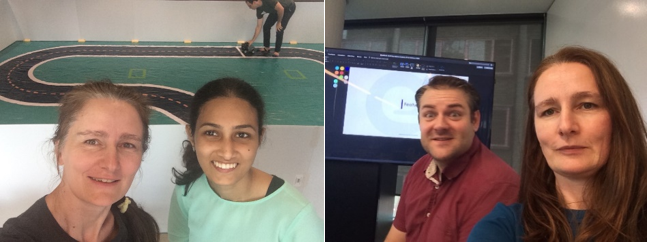
Victoria Lopez: For me, it does not make a big difference on the job that I am a female data scientist. I feel that the #EachForEqual message represents exactly that spirit: it does not matter your gender, if you are given an opportunity, you can create and develop solutions that are useful for anyone. I see no restrictions nowadays for a female to enter a highly technical discipline like data science. I also think that we have come a long way since 60-70 years ago, when higher education for women was restricted to careers that were more “woman-like”, for example, nursing or teaching.
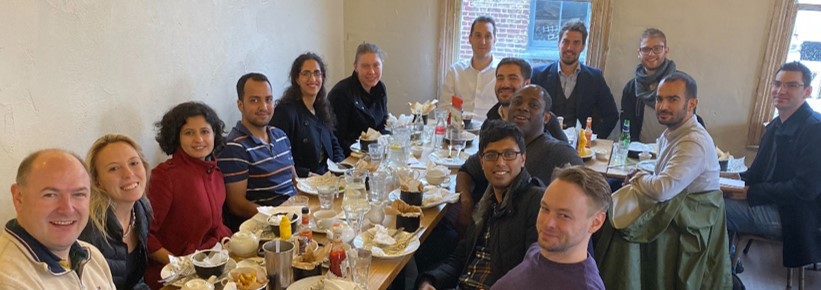
Begoña Ascaso: In University, our class was composed of an equal number of women and men, so I never questioned myself being different just because I was a female. Later in my career however I started seeing how the proportion of women was progressively decreasing.
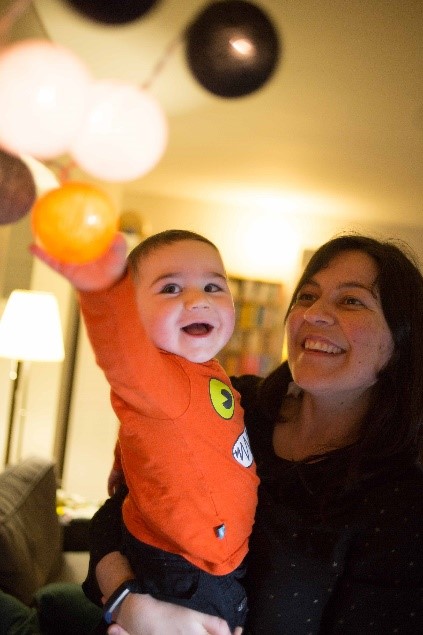
Many would not believe that there are women data scientists until they know one. Meeting great and successful female (data) scientists has helped me conclude that the best thing to do is set an example, shine and succeed. It is important to always be aware of the women/men bias and try to correct for them and I love to see that Expedia is making a great effort in that respect.
I have been very fortunate to have supportive parents who have raised me to be independent and dream big while still being a female in data science. Professionally, I have had the chance to find good people, including my manager and team at Expedia who have entrusted me with important responsibilities which has led to my personal growth and success. But also my partner has always supported and encouraged my professional choices, and helped at home as we share equal efforts in raising our son.
Why do you think data science is something that women should consider a career in?
Begoña Ascaso: I think data science is a great job for anyone (women or men) who enjoys solving problems. Historically, women were the ones that started programming first until its potential became more obvious to everyone. Moreover, It has been proved that more diverse teams perform better by enriching their performance, and indirectly, benefiting the industry.
But also, having more and more examples of successful women with good work records has a strong impact on the way the younger generations conceive the role of women. I think that women on average tend to be less self-confident than men and therefore, we are more afraid of trying. In Expedia, we are in a safe experiment to prove ourselves that we can do it.
Tatjana Kamenov: I also believe that no matter what gender you are, if you love something, you should pursue it. Sometimes the path to get there is not easy, but keep walking, if you fall, wipe your knees and continue, the reward will be great if you believe in your dreams.
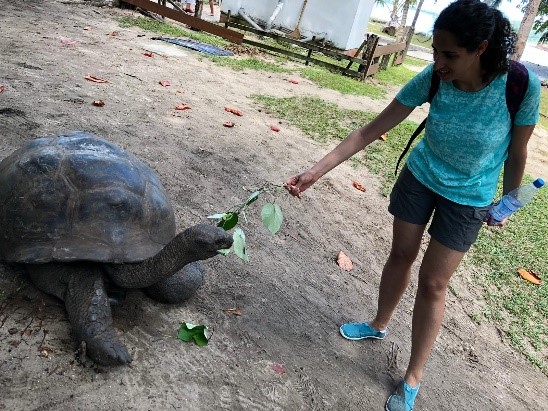
Victoria Lopez: Data science is a new exciting field where everyone can contribute from different angles. I see the future as incorporating more and more domain specific knowledge and I believe that having strong female data science leaders, especially in the tech travel industry, can make data science more attractive for women as they realise it to be a feasible career path.
What would you like to do for the rest of your career?
Victoria Lopez: I would like to keep finding solutions to interesting problems and to use data to support all types of decisions that are made. Data science evolves very quickly, and therefore the job might become more specialized or more automated. In either case, I believe the principles will remain the same and I can only be excited about what the future holds for our profession.
Tatjana Kamenov: I worked on many exciting projects, some of which include multiplayer online game server (MMOG) supporting millions of players, building one of the first virtual keyboards on mobile phones and many more. However, the big comeback of machine learning and neural networks in the past decade was the most thrilling experience for me. In Expedia, I created models for detecting anomalies in streaming data, a recommender system and made a machine learn how to assign soak cards to teams. There are many exciting ideas that I came up with when learning new models and discovering their applications so I cannot imagine life without data science.
Begoña Ascaso: I work on models that predict trends, but funny enough, life is very unpredictable. I don’t know how the Data Scientist job is going to change with time, as the algorithms and the available tools are evolving fast. I would love to keep helping rationalize business problems and measuring its impact, as somehow, to me it is like modeling the world.
—
Join our Talent Community
We’re looking for outstanding talent to join us on our purpose to bring the world within reach. By joining our talent community, you’ll have exclusive access to our latest opportunities, events, interview advice, and global insights from our Expedia Group leaders. Sign up now!
